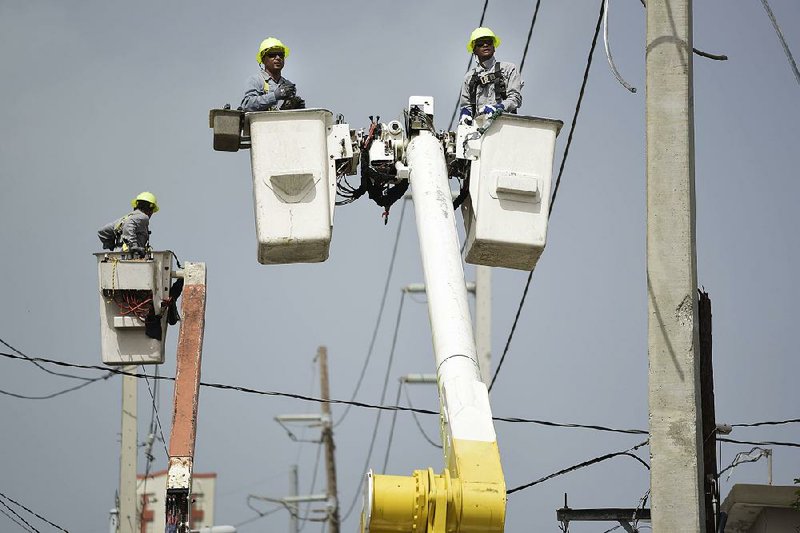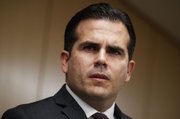SAN JUAN, Puerto Rico -- A move to privatize one of the largest public utilities in the U.S. has many wondering who would want to buy a power company that is worth roughly half of the $9 billion debt it holds and has an infrastructure nearly three times older than the industry average.
Concerns also are growing about whether plans to privatize Puerto Rico's Electric Power Authority will translate into more affordable electric bills and better service. People in the U.S. territory say they cannot afford another financial blow in the wake of an 11-year recession and many complain about receiving high power bills after Hurricane Maria when they didn't even have electricity.
"Some people have faith that privatization will improve everything, but it's not a guarantee," said Puerto Rico economist Jose Caraballo. "If a good deal isn't hammered out, Puerto Rico can end up worse than it is."
The power company once known as the government's crown jewel has seen a reduction in employees and a drop in the demand for energy on top of a deep economic crisis and recent austerity measures. The agency now has some 5,800 employees and serves nearly 1.5 million customers with infrastructure that is roughly 45 years old, which officials say caused frequent power failures before the hurricane and an islandwide blackout in September 2016 that lasted a couple of days.
The company also has long been criticized for political patronage and inefficiency, and recently faced accusations of corruption. In June 2016, the owner of the U.S. territory's biggest oil supplier was arrested after being charged with misappropriating $11 million in public funds. Jose Gonzalez Amador and his company, PetroWest, are accused of charging the power company a 0.5 percent municipal tax even though some municipalities granted them a lower rate or waived the tax altogether. Authorities say the charge was then passed on to consumers.
Given that situation, can the U.S. territory attract any takers?
Industry analysts say it's a bit too early to tell, noting that it all depends on the type of measure Gov. Ricardo Rossello expects to submit in coming days to start the privatization process.
"It's a complicated arrangement: What's going to happen to the workers? Where is the debt going to land? There are a lot of details here that have very real implications on how much electricity is going to cost for Puerto Rican customers," said Cathy Kunkel, an energy analyst with the Ohio Institute for Energy Economics and Financial Analysis in Ohio.
She said her main concern is that privatization could occur without a regulatory body, which is needed in part to look after consumers' interests on an island where power bills have been double the average of those on the U.S. mainland, in part because imported fuel supplies three-fourths of the energy consumed in Puerto Rico, according to the U.S. Energy Information Administration.
The terms of the contract will determine the interest, Kunkel said, noting that the cost of any new investment in the electrical system will be paid by consumers.
"Private investors will want to make a profit," she said. "But you have to contrast that with the waste and mismanagement that the [power company] has shown over the years."
Any sale would have to be approved by a federal judge because the power company entered a bankruptcylike process last year, and approval is first needed from legislators, but it is unclear if that will happen.
Puerto Rico Senate President Thomas Rivera Schatz said Tuesday that he will study the upcoming measure to ensure it's in the best interest of Puerto Rico and no one else.
"Privatization can be a great tool, but it is not a magic wand," he said, noting that Puerto Rico once privatized its water and sewer company only to have the government take it back in the early 2000s after problems with service, billing and quality requirements set by the U.S. Environmental Protection Agency.
If legislators approve the governor's measure, he said, his administration will monitor the market and start accepting offers from those interested in buying the power company's assets. He said privatization would both improve service and lower power bills to about 20 cents per kilowatt hour; the U.S. average is 10 cents per kilowatt hour. He also predicted it would lead to more investment in renewable energy.
Business on 01/24/2018


